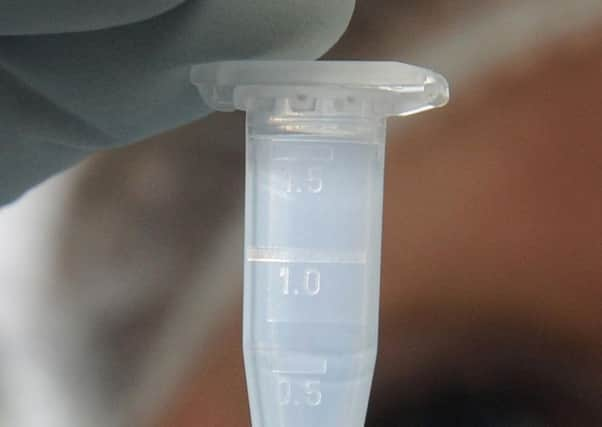Poor record-keeping means scale of forensics scandal '˜may never be known'


It was revealed last week more than 10,000 national criminal cases connected to Manchester-based company Randox Testing Services are in question, with the scandal also affecting a now-defunct forensics firm called Trimega.
Advertisement
Hide AdAdvertisement
Hide AdTwo men arrested over the scandal earlier this year worked for both companies.
A statement from Randox Testing Services said: “The Government has requested that the public self-report if Trimega was involved in their case as poor record-keeping by the laboratory means the number of Trimega customers and identities may never be known.”
The Home Office is investigating civil cases that may have been subject to data manipulation and results from all tests carried out by Trimega between 2010 and 2014 are being treated as potentially unreliable. The Government has invited people with doubts about their case in the family courts to make an application to the courts.
Trimega was twice publicly criticised by judges for incorrect results affecting care proceedings before it collapsed into administration in 2014.
Advertisement
Hide AdAdvertisement
Hide AdIn June 2011, a mother facing the possibility of her two young children being taken into care by her local council was initially told tests on her hair strands showed she had been using increasing amounts of drugs.
But after denying the accuracy of Trimega’s findings about having cocaine and opiates in her system, the results of a second test conducted by a different firm called Concateno appeared to confirm the woman’s version of events that she had been clean of drugs for five months and was making progress with her recovery from past problems.
Just before a court case later that year to try to resolve the issue, affecting the decision on whether children aged three and four should be removed from their mother, Trimega conceded its analysis had been “erroneous and unreliable”.
But the company initially failed to apologise to the mother because it feared rivals would exploit such an admission for commercial advantage.
Advertisement
Hide AdAdvertisement
Hide AdMr Justice Baker, who heard the case, said: “In this respect, Trimega’s attitude does no credit to an organisation entrusted with the responsibility of providing independent expert advice to the court on matters that will affect the lives of children and families.”
His judgement concluded: “A high degree of responsibility is entrusted to expert witnesses in family cases. Erroneous expert evidence may lead to the gravest miscarriage of justice imaginable – the wrongful removal of children from their families.”
In 2013, Trimega was criticised by another judge after admitting a “clerical” error which had wrongly suggested a mother whose child was in care had given a blood-alcohol test which was consistent with “heavy drinking”; an incorrect finding which resulted in the return of the one-year-old child to the care of her mother being delayed for almost two months.
Her Honour Judge Williams, who heard that case, said: “If the mistake had remained undiscovered it is probable, given the history in this case, that it would have led to the adoption of the child instead of rehabilitation to care of her parent.”